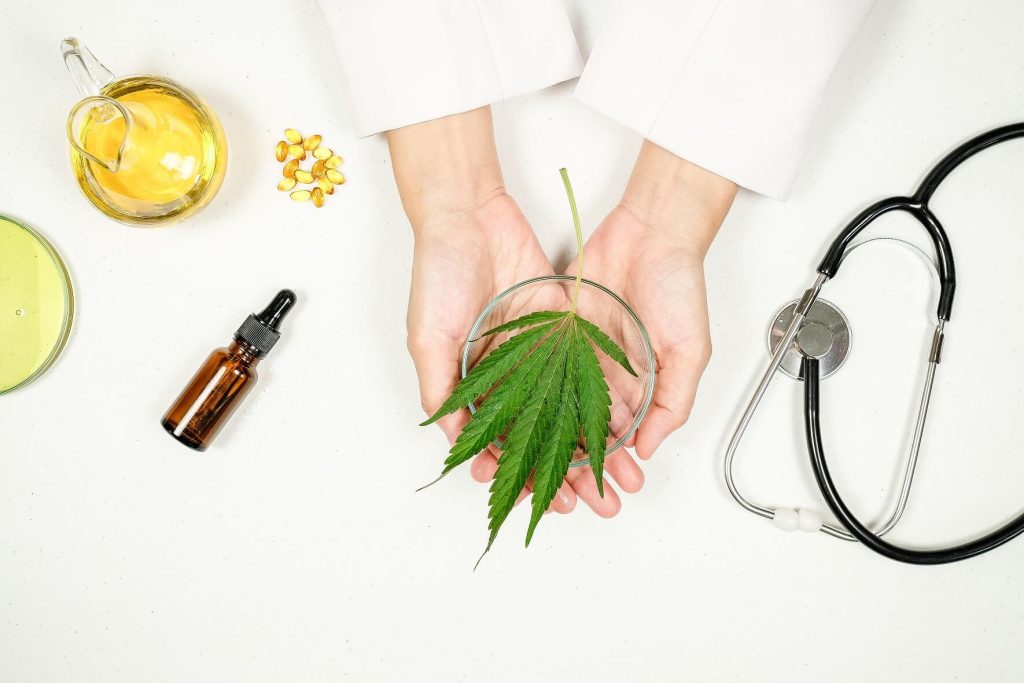
Listen to the automated AI version of this article here:
CBD oil is made using extracted CBD from the cannabis plant. CBD has been used to try and help with many physical and mental ailments due to its various properties.
Cancer is the biggest cause of death in NZ, with most of us knowing someone who has experienced it (1).
Because of cancer’s many side effects, many have turned towards natural options like CBD oil to try and help with cancer or the treatment side effects.
I have treated and helped treated thousands of patients with cancer and I share what I have learnt from this experience below.
Before I start, it is important to point that we do not use medicinal cannabis as a treatment to cure cancer. When we do prescribe it, it is intended to try and help improve your quality of life.
CBD oil and cancer
CBD oil is a natural treatment option commonly used as an alternative to traditional medicine for many health conditions throughout the world, including cancer.
While more research is needed to determine if CBD is a good option for cancer treatment side effects, there have been promising results.
If you or a loved one has cancer, considering CBD oil and medicinal cannabis is a good idea and speaking to one of our experienced doctors is your best next step.
Cancer treatment
- Can CBD oil be used to treat cancer? No.
Investigating the relationship between CBD and cancer is still a relatively new area, so research is still ongoing. However, there is some evidence shows that cannabinoids can reduce tumour growth and slow or even stop cancer growth. On the other hand, there is evidence that medicinal cannabis use has been associated with worsening cancer progression.
Researchers in 2014 suggested that CBD may help slow colorectal cancer cell growth while not affecting healthy cells after looking at colon cancer models. Similarly, researchers in 2019 showed CBD could induce tumour cell death by regulating several essential proteins. This decreased overall tumour volume (2).
Inflammation is often high in cancer patients. Cannabinoids may possibly help this and produce anti-inflammatory effects, acting as protective agents in neuroinflammatory disorders (3).
For the treatment of cancer, I always encourage patients to continue with conventional medications. Where medicinal cannabis is considered, it should only be used if determined to be appropriate by your doctor and to help improve your quality of life.

Complementary treatment
- Can CBD oil be used to treat the side effects of cancer treatment? Yes, CBD oil and medicinal cannabis is a possible option for you to try as a treatment for pain, nausea and low appetite.
While treatment is necessary to kill off cancerous cells, the side effects experienced are not pleasant! These effects can be painful and long-lasting. Luckily, researchers have investigated how CBD may be used as a complementary treatment to ease some of the side effects of cancer, including pain, anxiety, and insomnia.
Pain is often noted as the most common side effect experienced. Because of this, pain relief can be essential to improve the patient’s well-being. A recent review looked at several studies to assess how CBD works in relieving chronic pain, with a range of pain conditions examined. Researchers found CBD was effective in overall pain management across many different pain types (4).
CBD may possibly encourage sleepy feelings in individuals who have insomnia and anxiety as side effects. A recent study looked at CBD’s role in decreasing anxiety and improving sleep quality in a group of people who took just one CBD capsule daily. After a month, the majority of patients reported reduced anxiety (80%) and better sleep (67%) (5).
Nausea and low appetite are also common during cancer and cancer treatment. There is some evidence that CBD oil can help reduce nausea. However, this is an area where THC, the psychoactive component of cannabis, is more helpful. THC has been shown to possibly help reduce nausea and improve appetite in relation to cancer.
Eating well during cancer is very important as it fuels your body and provides energy. Loosing weight and muscle with cancer only adds to more suffering and anxiety which is not ideal.
If the idea of getting high in off putting, which it is for many people, rest assured that this is not the case. Using medicinal cannabis and THC oil in a medicinal way is about getting the benefit without the high.
Overall, the results are encouraging but not conclusive.
Preventative treatment
- Can CBD oil prevent cancer? CBD oil may help possibly reduce obesity and lower cholesterol levels in the blood but it is not a treatment to prevent cancer.
Preventative treatments work by reducing the key risk factors for developing cancer. There are many factors, but some common ones include obesity and increased cholesterol levels.
While obesity is mainly influenced by lifestyle factors, such as a healthy diet and exercise regime, many studies have investigated the relationship between obesity and CBD use. CBD has been shown to possible affect weight loss and weight gain since one of CBD’s possible side effects is a change in appetite (6).
Animal studies show CBD influencing metabolism and decreasing food intake due to CBD’s interaction with several brain and lymphoid tissue receptors. These receptors play a crucial role in body metabolism (7).
Research is divided on CBD’s role in lowering cholesterol; however, several animal studies have been promising. A 2011 study involving mice suggests that CBD treatment can regulate cholesterol homeostasis in microglial cells, keeping blood cholesterol levels stable (8).
How does CBD possibly help with cancer treatment side effects?
- CBD works on the endocannabinoid system.
Because cancer is a highly complex disease, it’s hard to pinpoint how exactly CBD may help. While many studies show CBD may help improve cancer treatment side effects, the research is still mixed.
If CBD for cancer does work, how could it do so? The key lies in how CBD can possibly regulate commonly experienced cancer side effects, including nausea, anxiety, insomnia, and pain. This is through the endocannabinoid system.
The endocannabinoid system is present in our bodies and is essential for food intake, fat and glucose regulation, and metabolism. It consists of endocannabinoids, their receptors, and some enzymes. CBD works by interacting with these receptors which may be how it possibly can help lead to supporting pain relief and appetite regulation (9).
How to use CBD oil for cancer treatment side effects?
- It is important to use the right product and dose of CBD oil
Before using CBD, talking to your doctor or specialist is very important. They will determine whether CBD or another form of medication is best suited for your symptoms and the correct dosage needed for your body.
Usually, a suitable dosage level to start at would be 25 mg. It is best to start with a small amount to test CBD’s effects on your body before gradually increasing it. Most research investigating CBD’s possible therapeutic effects has involved smaller doses.
CBD oil can be taken by putting the sample directly under the tongue, which increases the absorption rate (10). Choosing a reputable CBD oil company is essential. Ideally, identify companies that consistently produce high-quality products.
I encourage you to speak to one of our experienced cannabis doctors at the clinic.
CBD side effects
- CBD oil is very safe and well tolerated.
While side effects are minimal, they can still occur! These include nausea, dizziness, diarrhoea, and appetite change (11). CBD may also interact with other medications you take, so talk to your doctor if you are worried about this.
Side effects can often be decreased by lowering dosage amounts, limiting use (especially when first trying CBD), and choosing CBD products from reputable companies.
CBD for cancer: The bottom line
While research is still ongoing, there are some studies that have suggested the positive role CBD oil may play in easing cancer treatment symptoms. CBD can affect our bodies in various ways, so it’s crucial to find the correct dosage for you.
If you or a loved one is considering using CBD oil for cancer treatment side effects, please book an appointment with us. Our team of doctors can ensure you are using the right CBD products safely.
If you have had experience with CBD oil and cancer, please share your story below, I would love to hear about it!
Disclaimer – medicinal cannabis and CBD oil are unapproved medicines in NZ which means that there is no conclusive evidence for their effect, apart from Sativex. Many doctors do not routinely prescribe cannabis medicines. The above article was written for general educational purposes and does not intend to suggest that medicinal cannabis can be used to treat any health condition. Please consult with your healthcare provider.
Disclaimer: Medicinal cannabis and CBD oil are unapproved medicines in NZ which means that there is no conclusive evidence for their effect, apart from Sativex. Many doctors do not routinely prescribe cannabis medicines. The above article was written for general educational purposes and does not intend to suggest that medicinal cannabis can be used to treat any health condition. Please consult with your healthcare provider.